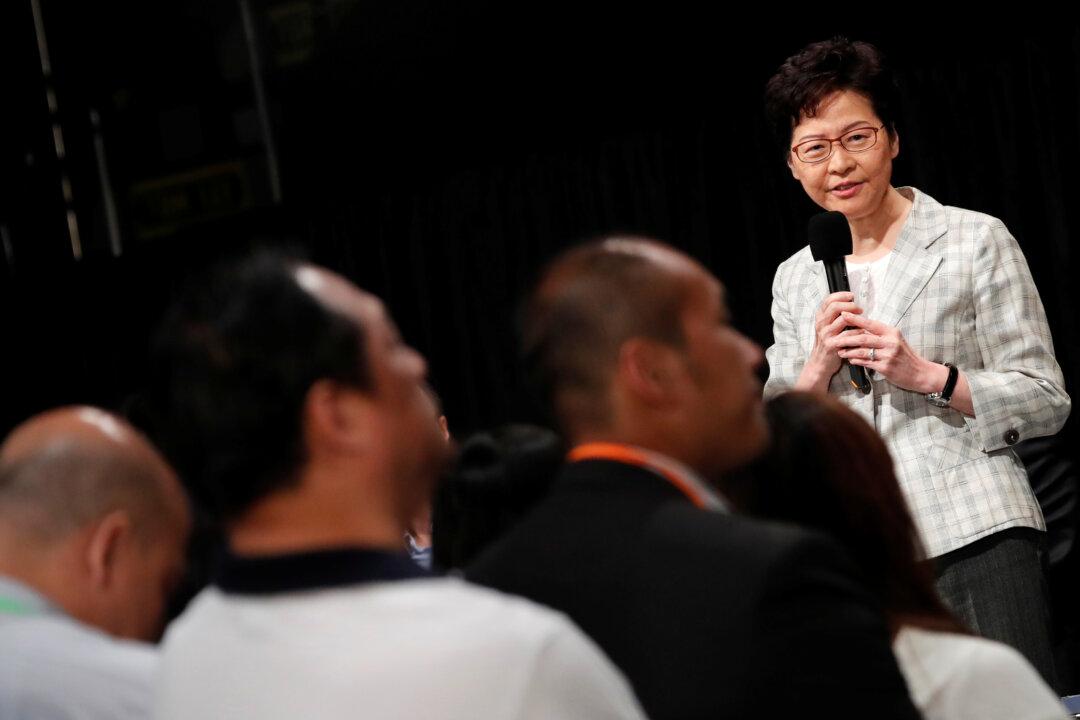HONG KONG—Hong Kong residents turned on leader Carrie Lam on Sept. 26, criticizing her for curbing electoral freedoms as she began the first “open dialogue” session with the public in a bid to end more than three months of sometimes violent protests.
Lam nodded attentively in the town hall-like gathering as speaker-after-speaker accused her administration of ignoring the public and exacerbating a crisis that has no end in sight.





